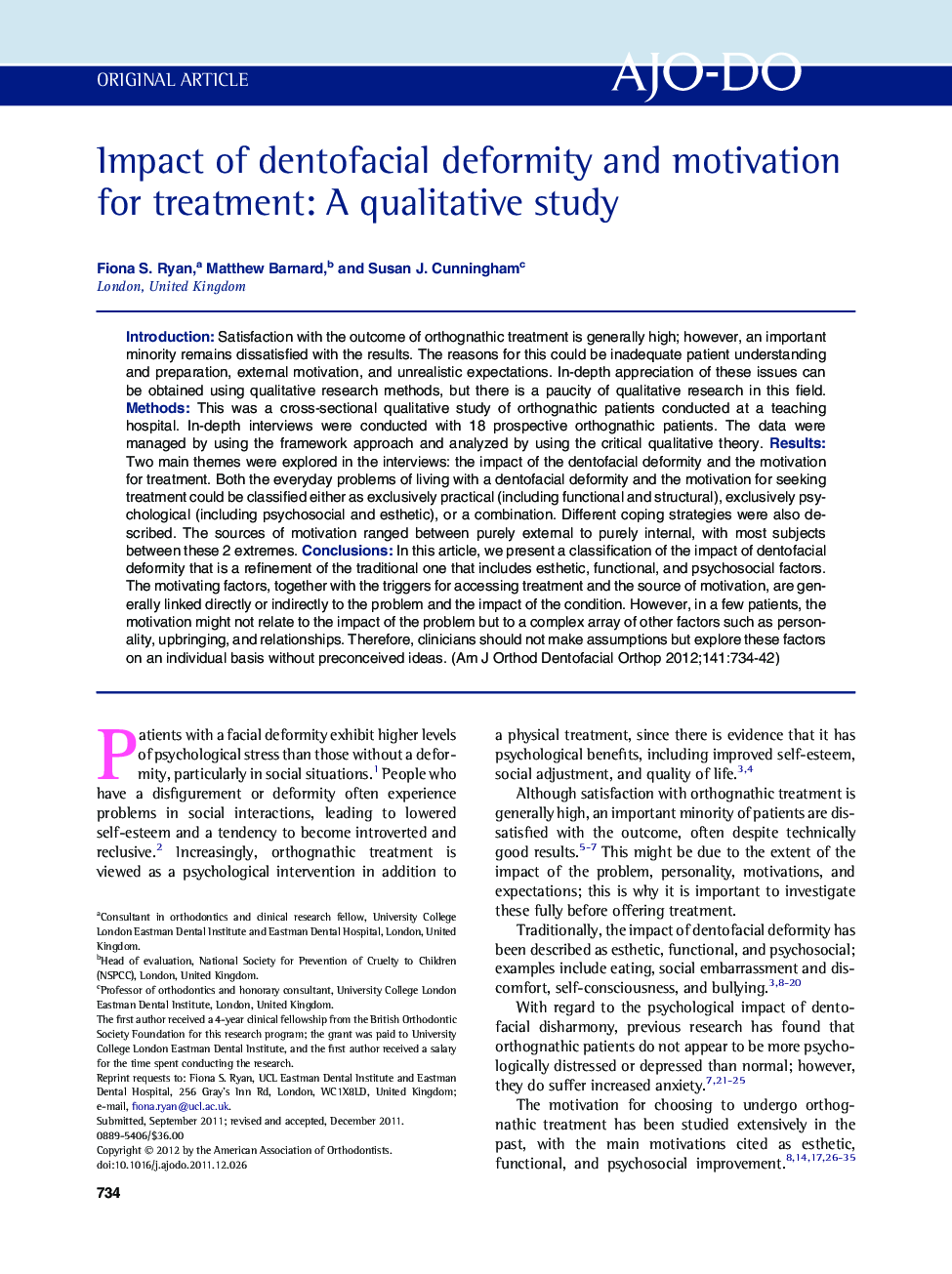| Article ID | Journal | Published Year | Pages | File Type |
|---|---|---|---|---|
| 3116651 | American Journal of Orthodontics and Dentofacial Orthopedics | 2012 | 9 Pages |
IntroductionSatisfaction with the outcome of orthognathic treatment is generally high; however, an important minority remains dissatisfied with the results. The reasons for this could be inadequate patient understanding and preparation, external motivation, and unrealistic expectations. In-depth appreciation of these issues can be obtained using qualitative research methods, but there is a paucity of qualitative research in this field.MethodsThis was a cross-sectional qualitative study of orthognathic patients conducted at a teaching hospital. In-depth interviews were conducted with 18 prospective orthognathic patients. The data were managed by using the framework approach and analyzed by using the critical qualitative theory.ResultsTwo main themes were explored in the interviews: the impact of the dentofacial deformity and the motivation for treatment. Both the everyday problems of living with a dentofacial deformity and the motivation for seeking treatment could be classified either as exclusively practical (including functional and structural), exclusively psychological (including psychosocial and esthetic), or a combination. Different coping strategies were also described. The sources of motivation ranged between purely external to purely internal, with most subjects between these 2 extremes.ConclusionsIn this article, we present a classification of the impact of dentofacial deformity that is a refinement of the traditional one that includes esthetic, functional, and psychosocial factors. The motivating factors, together with the triggers for accessing treatment and the source of motivation, are generally linked directly or indirectly to the problem and the impact of the condition. However, in a few patients, the motivation might not relate to the impact of the problem but to a complex array of other factors such as personality, upbringing, and relationships. Therefore, clinicians should not make assumptions but explore these factors on an individual basis without preconceived ideas.
